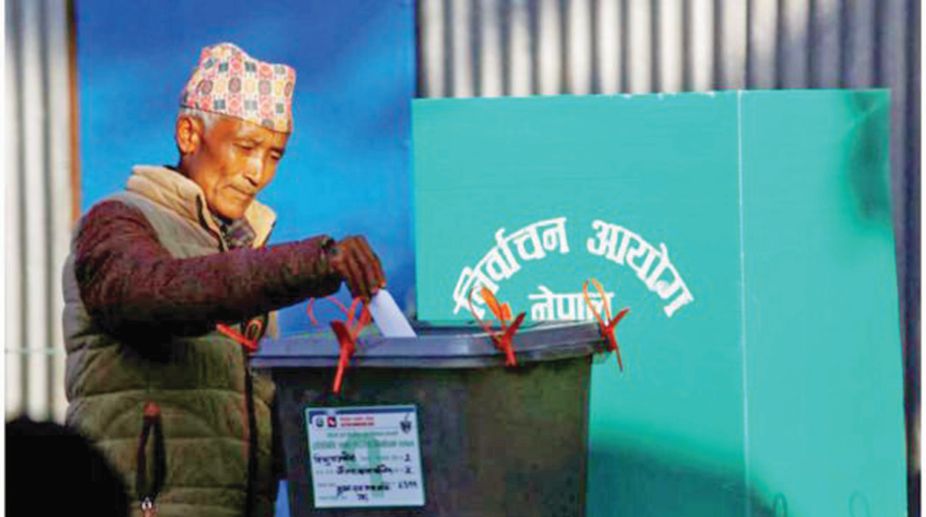In the early evening of 30 October 1968 a Royal Nepal Army jeep drove down the steep dirt driveway to late Tarini Koirala’s house in Chabahil, Kathmandu. As it stopped, an officer stepped out, opened the passenger door and BP Koirala, Tarini’s elder brother, emerged. The officer clicked his heels, gave BP a stiff, respectful salute and drove away.
King Mahendra had just released BP after eight years of detention. As the news of the release spread, the quiet Chabahil house, hitherto shunned by visitors for fear of reprisal by the King’s men, suddenly came to life. Journalists, political activists and ordinary citizens flocked to the room where BP was receiving visitors.
Advertisement
I was standing behind BP’s chair when the late Rishikesh Shaha walked in and took a seat next to BP. After an exchange of pleasantries, their conversation turned to the King’s coup on 15 December 1960—the day Mahendra had arrested BP, dissolved Nepal’s parliament and assumed absolute power. Shaha blamed the “flawed constitution” (of 1958) for the debacle. The constitution gave the King executive powers at times of emergency.
BP countered: “It is not the flaw in the constitution, Shaha ji, but the betrayal of its spirit. Regardless how good a constitution is, it is never perfect. A constitution becomes a worthless scrap of paper if those in charge of its execution do not honour its spirit. Nepal did not have emergency on December 15”.
He continued: “You know, under Soviet constitution any Soviet in the Republic could leave the Union by a simple notice to Kremlin of its intention to secede; yet the USSR sent tanks even to independent states of Hungary and Czechoslovakia when they challenged its hegemony.
“The Queen of England wields significant power under Royal Prerogatives. These include power to declare war and dissolve the parliament. Yet she uses them only with the advice of her Prime Minister”.
BP’s point that democracy suffers when the leaders at the helm wilfully ignore the spirit of the constitution is borne out by the setback of democracies around the world in the last two decades and indeed by Nepal’s experience of democracy, which has failed to deliver over the last ten years.
In 1989, after the fall of the Berlin wall and collapse of the Soviet Union, Francis Fukuyama, a highly respected American Political scientist at Stanford University, predicated the “End of History”.
He meant the victory of liberal democracy has ended the evolution of the form of governance of human society. Liberal democracy would henceforth become the world’s “final form of human government”, he said.
Fukuyama’s prophecy gained credence as communists started embracing liberal democracy, and as communist and other forms of dictatorship started falling.
In Nepal, the UML and the Maoists gave up their communist orthodoxy and embraced multiparty democracy. The spread of liberal democracy looked unstoppable when, in 2010, the “Arab Spring” captured the world’s imagination.
But the enthusiasm did not last very long. According to “The Freedom House”, an independent watchdog organisation dedicated to the expansion of freedom and democracy around the world, “2016 marked the 11th consecutive year in which decline in freedom (i.e. democracy) outnumbered improvements”.
Authoritarian governments under the cover of democracy have started becoming the new norm.
Two Harvard professors Steven Levitsky and Daniel Ziblatt best describe this trend in their recent book “How Democracies Die”. “Since the end of the Cold War, most democratic breakdowns have been caused not by generals and soldiers but by elected governments themselves. Like Hugo Chávez in Venezuela, elected leaders have subverted democratic institutions in Georgia, Hungary, Nicaragua, Peru, the Philippines, Poland, Russia, Sri Lanka, Turkey and Ukraine”.
Many government efforts to subvert democracy are “legal”, in the sense that they are approved by the legislature or accepted by the courts.
“Democratic backsliding today begins at the ballot box. The electoral road to breakdown is dangerously deceptive.
“Democracy survives where constitutions are reinforced by unwritten democratic norms. These include preserving and strengthening checks and balances and the leaders using institutional prerogatives with restraint and forbearance”.
How does the future of Nepal’s democracy look like when examined with reference to the Levitsky/Ziblatt observations and BP’s “honouring the spirit of the constitution” comments?
A few months ago, Nepal had a fair, peaceful election for different levels of government. Unlike in many other developing countries, all the contestants accepted the election results.
A new government headed by the coalition of the communists, which won majority of the seats in the parliament, is now in power. The transfer of power was peaceful. The key structures of liberal democracy—checks and balances with “independent” judiciary, executive and legislature—are all in place. All looks good?
Not quite!
What is missing is a demonstrable commitment by our political leaders to the spirit of the constitution and the basic norms of democracy. Without that commitment, what we get is what we have: a dysfunctional democracy – a democracy where public institutions have no public trust; where judiciary is in tatters; where alleged criminals freely roam the halls of parliament under the protection of the leaders.
Records show such democracies are sitting ducks to populists and demagogues. The new government is led by the same cadre who brought us to this state.
Will they change? Will they recognise the spirit of the constitution and rule with restraint and forbearance and give us a productive, functional democracy? A tall order, considering their recent past! Time will tell.
The Kathmandu Post/ANN.











